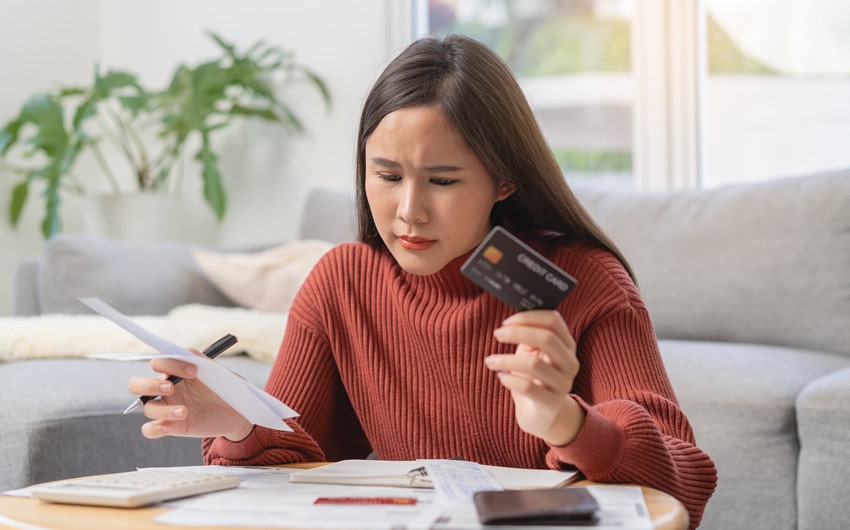Ways to Pay Off Gambling Debt
When Debt Is Only Part of the Problem
Gambling debt has a way of sneaking up on people. It is not just the money lost at the casino or online betting sites that creates the problem. It is the credit cards maxed out to cover losses. It is the personal loans taken out to chase the next win. It is the borrowing from friends and family with promises to pay it back soon.
What starts as entertainment can quickly spiral into something much more serious. While debt consolidation is often suggested as one solution to manage the pile of debt, it is only one piece of a much bigger puzzle. Tackling gambling debt requires a two part strategy: dealing with the money owed and addressing the gambling behavior that caused it.
Face the Numbers Honestly
The first step in dealing with gambling debt is to take a hard look at the full picture. Write down every debt you have. Include credit cards, personal loans, payday loans, and any money borrowed from friends or family. This might feel overwhelming, but it is important to know exactly where you stand. Hiding from the numbers will not make them go away. In fact, having a clear list can be strangely empowering because it transforms a vague sense of doom into something concrete you can work with.
Get Help for the Gambling First
Before you start aggressively attacking the debt, you need to make sure the gambling problem is under control. Otherwise, any progress you make can quickly disappear with one bad decision. Seeking professional help is a smart move. There are support groups like Gamblers Anonymous, as well as counselors who specialize in addiction. This is not about shame or blame. It is about giving yourself the best chance to break free from the cycle. Once the gambling is addressed, you can focus on repairing the financial damage with a clear head.
Explore Debt Consolidation Options
Debt consolidation can be a helpful tool for some people in this situation. This involves combining multiple debts into one loan with a lower interest rate, making it easier to manage monthly payments. Instead of juggling several high interest credit cards, you make one consistent payment that hopefully fits your budget better. But debt consolidation is not a magic fix. You need to be sure that the gambling habit is under control before taking this step. Otherwise, you risk piling new debt on top of the consolidated loan.
Create a Realistic Budget You Can Stick To
A budget is your financial game plan. Start by listing your essential expenses like housing, food, transportation, and utilities. Then allocate money for debt payments. Be honest about what you can realistically afford while still meeting your basic needs. Do not forget to include some small amounts for entertainment or fun. If your budget feels too strict, you might get discouraged and abandon it altogether. The goal is to create a sustainable plan that keeps you moving forward.
Consider a Debt Management Program
If organizing your debts feels too overwhelming, a debt management program might be worth exploring. These programs are typically run by nonprofit credit counseling agencies. They work with your creditors to negotiate lower interest rates and set up a single monthly payment. While you still pay off the full amount of your debt, you do it under terms that may feel more manageable. Make sure to choose a reputable agency with a solid track record before enrolling.
Balance Transfer Cards Can Offer Temporary Relief
Some people use balance transfer credit cards to move high interest credit card debt to a new card with a low or even zero percent introductory interest rate. This can save you money on interest if you are disciplined enough to pay off the balance before the promotional period ends. However, this strategy requires careful planning. If you do not pay it off in time or start using the new card for more spending, you can end up in worse shape than before.
Bankruptcy: A Last Resort, But Sometimes Necessary
In severe cases where the debt is simply too large to manage, bankruptcy may be an option to consider. This legal process can discharge certain types of debt or set up a court supervised repayment plan. Bankruptcy should never be taken lightly, but for some people, it provides a chance for a true financial reset. If you are considering this route, consult with a qualified bankruptcy attorney to understand the full consequences and whether it makes sense for your situation.
Involve Trusted Support Systems
Dealing with gambling debt can feel isolating, but you do not have to face it alone. Trusted friends, family members, or financial counselors can provide support and accountability. Sharing your plan with someone else can help you stay focused and motivated. Sometimes just knowing someone is cheering you on makes a huge difference in sticking to your goals.
Find Ways to Build New Habits
Since gambling often filled a big part of your free time, it is important to find new hobbies or activities to replace it. Exercise, creative projects, volunteering, or learning new skills can all help fill the void left by gambling. Building positive habits not only keeps you busy but also reinforces your commitment to financial recovery.
Be Patient With The Process
Paying off gambling debt will not happen overnight. There will be setbacks, unexpected expenses, and moments when it feels like you are not making progress. That is normal. Stay focused on your long term goals and celebrate small wins along the way. Every payment you make, every month you stick to your budget, and every day you stay away from gambling is a victory.
The road out of gambling debt is not easy, but it is absolutely possible. With the right plan, support, and mindset, you can break free from the cycle and build a healthier financial future.







